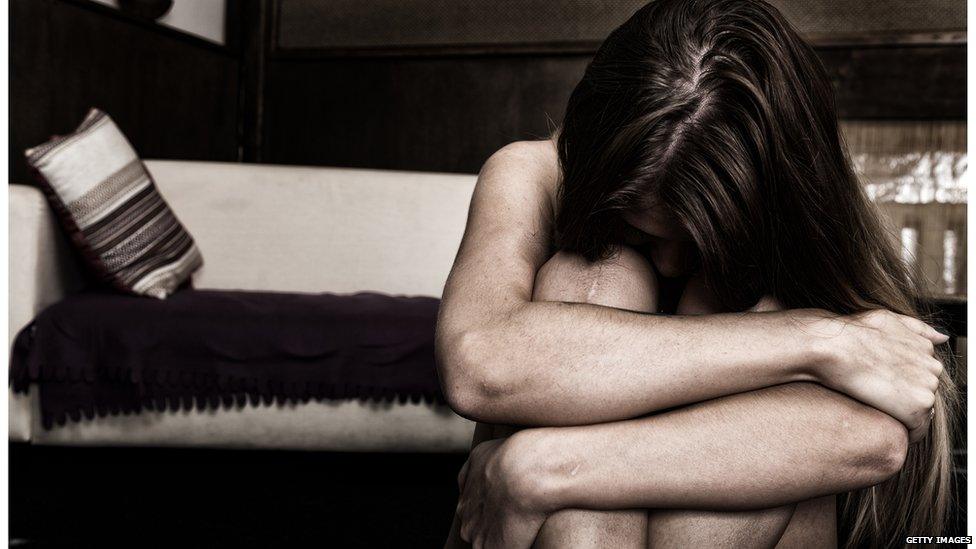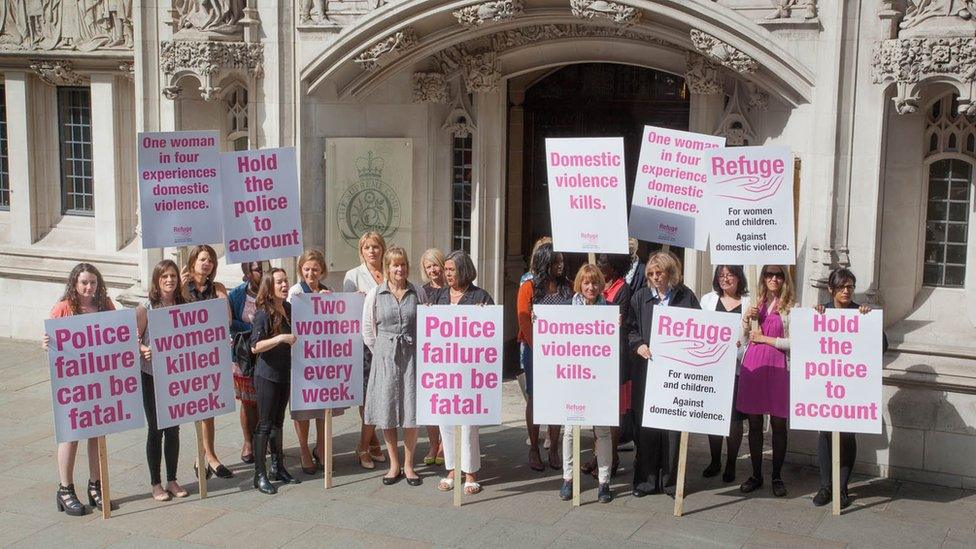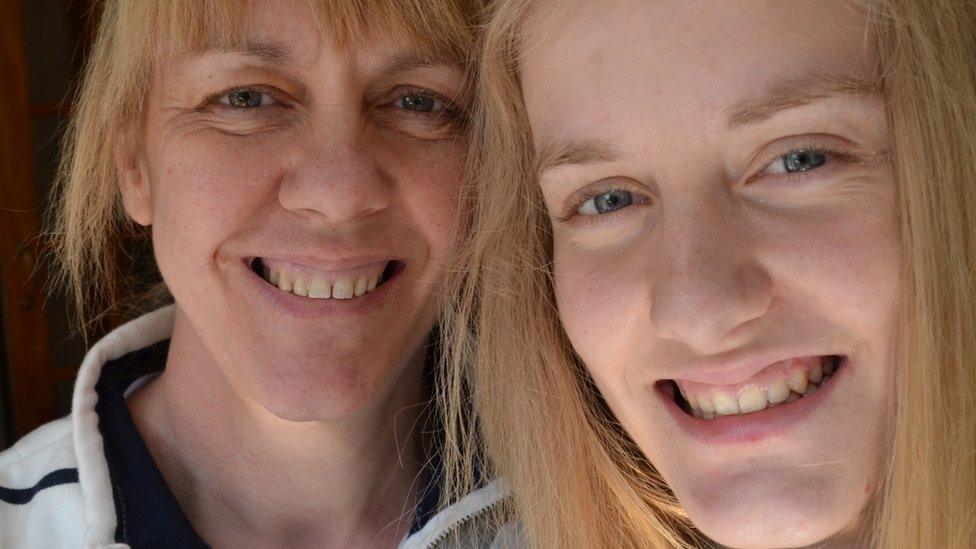Domestic abuse: Majority of controlling cases dropped
- Published

Figures for the first two-and-a-half years of a new law on coercive and controlling behaviour show the majority of cases were dropped without a charge.
Data obtained by the BBC from 33 police forces in England and Wales, for January 2016 to July 2018, showed there were 7,034 arrests - but only 1,157 cases ended with someone being charged.
Some 4,837 cases were dropped by police or prosecutors, the figures show.
Campaigners said the data was "deeply alarming for women".
The Home Office said there had been 235 successful convictions since the law was introduced.
What is coercive control?
Coercive or controlling behaviour within an intimate or family relationship was established as a criminal offence in the Serious Crime Act 2015, external, and came into force on 29 December 2015.
It can involve acts of humiliation or intimidation, or making the victim subordinate or dependent.
Examples can include cutting someone off from friends and family, stopping them from having independent finances, and controlling where they go.
The offence was created because this form of domestic abuse was not previously covered by legislation.
MPs and campaigners argued that the law was too focussed on the physical evidence of violent crimes, rather than patterns of non-physical abuse.
'I questioned my sanity'
Natalie - who does not want her full name to be used - told Radio 4's World at One programme about her experience of being subjected to coercive and controlling behaviour.
She met her ex-husband in 2012 and said that early signs of aggression and bullying had not raised red flags in her mind.
"I thought everything he was doing was my fault," she said.
"I call it the drip through effect. At the beginning it's drip, drip, drip until the tap is fully on and I started to question my own sanity."
Natalie said she eventually started to gather evidence of the abuse to give to police. But she stressed that while gathering evidence had helped her, it might not be the safest option in all cases.
She said her local police force had been "truly amazing", adding: "I owe them my life."
So what else did the data show?
The BBC's figures on coercive abuse - obtained under the Freedom of Information Act - came from 33 of the 43 police forces in England and Wales.
The outcome of cases varied considerably in different areas, and in some instances individuals may have been arrested more than once, or charged more than once.
The arrests that did not end in a charge included cases where an individual was released under investigation or cautioned - among other outcomes.
It comes as figures from the Office for National Statistics, external showed the number of offences recorded by police that relate to the new law have increased.
According to Ministry of Justice data for 2016 and 2017, the average custodial sentence for those sent to prison under the new law was 17 months. And the average amount of compensation paid to victims was £413.
Reaction: 'A life and death issue'
Sandra Horley, chief executive of the domestic violence charity Refuge, said: "These statistics are deeply alarming for women who rely on the police to protect them from their aggressive partners.
"Every day at Refuge we support thousands of women who have been subjected to years of emotional abuse, stalking, harassment, financial abuse and other forms of non-physical abuse and intimidation.
"Refuge is urging every police force to ensure that all of its officers receive specialist training on how to identify and investigate reports of coercive control. Two women are killed by their partner every week in England and Wales; domestic abuse is a life and death issue."

Sandra Horley, centre with a placard, and Refuge have campaigned against domestic violence
What do police and ministers say?
Deputy Chief Constable Louisa Rolfe, the National Police Chiefs' Council lead on domestic abuse, said arrests and prosecutions were going up but police "still have some way to go".
"I've encouraged forces to work with their local Crown Prosecution Service teams to share training and think 'coercion and control' with every case of domestic abuse," she said.
"It is wrong to conclude that the data represents a worsening picture. This is still relatively new legislation and we are determined that we will use it effectively to better protect victims and bring dangerous offenders to justice."
A Home Office spokesman said: "Since the introduction of the coercive and controlling offence in December 2015, there have been 235 successful convictions and a third-fold increase in the number of defendants proceeded against.
"While we are encouraged that the new offence is increasingly being used by police, we will continue to work with police and prosecutors to ensure the new laws are used to maximum effect.
"Since 2010, all prosecutions for domestic abuse have increased by 20% and convictions by 28% - meaning that more perpetrators are being brought to justice."
The Home Office says there are plans for a statutory government definition of domestic abuse that will cover psychological, physical, sexual, economic, and emotional abuse.
- Published28 November 2018

- Published26 November 2018

- Published29 November 2018
